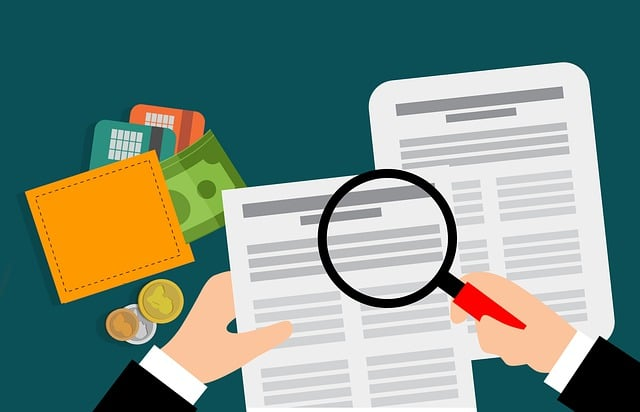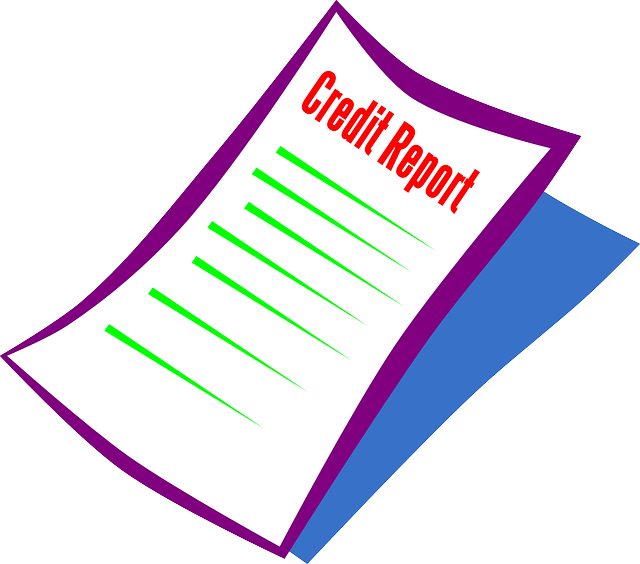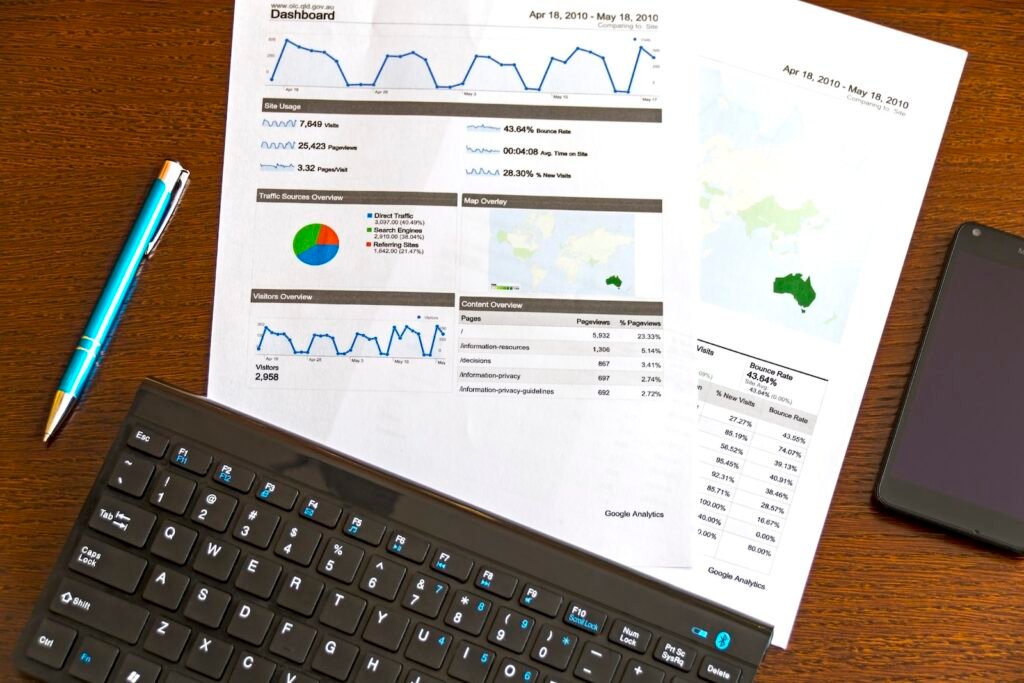The Importance of a Clean Credit Report
Your credit report is like a financial report card.
Just as your grades in school reflect how well you’ve done in your classes, your credit report shows lenders, landlords, and even some employers how responsible you’ve been with your money.
It’s a record of your financial and credit history together, and it can open doors to opportunities or close them if it’s not in good shape.
Why Late Payments Are a Big Deal on Your Credit Reports
Imagine forgetting to turn in a major project in school and getting a big, red “F” on your report card.
That “F” can pull down your overall grade, making it harder to get into a good college or qualify for scholarships.
Similarly, a late payment on your credit report is like that “F”.
It tells potential lenders that there was a time when you didn’t pay back what you owed on time.
This can make them nervous about lending you money in the future.

The Ripple Effect of a Single Late Payment
You might think, “It’s just one late payment, how bad can it be?”
But even one incorrect late payment can have a ripple effect on your financial health. It can:
– Lower Your Credit Score: Your credit score is a number that represents your creditworthiness. A lower score can make it harder to get approved for loans or credit cards.
– Increase Interest Rates: If you have a lower credit score because of late payments, lenders might charge you higher interest rates. This means you’ll end up paying more money over time.
– Affect Future Financial Opportunities: With a late payment on your report, you might have trouble getting approved for a mortgage, renting an apartment, or even getting a job that requires a credit check.
Maintaining a clean credit report is crucial for your financial well-being.
Late payments can have long-lasting negative effects, but the good news is, there are steps you can take to address them and improve your financial future.
In this article, we’ll guide you through the process of removing a late payment from your credit report, ensuring you have the best chance at a bright financial future.
2. Understanding Late Payments From Your Credit Report
What Exactly is a Late Payment in the World of Credit?
At its core, a late payment is precisely what it sounds like: a payment made after its due date.
But in the realm of credit reports, it’s not just about being a day or two late.
Typically, creditors report late payments to all the credit bureaus only after they are 30 days overdue.
So, if you forgot to make a payment and remembered a week later, it might not affect your credit report, though you might incur a late fee from the lender.
How Consumer Reporting Agencies Track These Late Payments
There are three major credit reporting agencies: Equifax, Experian, and TransUnion.
These agencies collect data from various creditors about your payment habits.
When you make a payment, whether it’s making on time payments or late, this information is sent to these agencies.
Late payments reported are categorized based on how late they are on time payments:
– 30 days late
– 60 days late
– 90 days late
– 120 days late
– 150 days late
– Charge off (when the creditor gives up on you paying)
Each category carries its weight, with the later payments having a more significant negative impact on your credit score, how they result in credit scoring models and ultimately the way they continue calculating credit scores.
Having multiple late payments is detrimental to your credit scores.
Distinguishing Between a Late Payment and Other Negative Marks
It’s essential to understand that not all negative items on your credit report are the same.
Here’s a breakdown:
– Late Payments: As discussed, these are payments made 30 days or more after the due date.
– Collections: If you don’t pay a debt for several months, the creditor might sell it to a collection agency. This debt collectors will then attempt to recover the money from you. A collection is a severe negative mark on your credit report.
– Bankruptcies: This is a legal process where you declare that you cannot pay your debts. It stays on your credit report for 7-10 years and has a profound negative impact.
– Foreclosures and Repossessions: If you don’t make payments on your house or car, the bank can take them back. This action will also be reported to the credit bureau.
Late payments, while detrimental, are just one of several negative marks that can appear on your credit report.
It’s crucial to regularly check your credit report late payments, to ensure that all the information is accurate and to address any negative items promptly.
The next sections will guide you on how to handle a late payment mark and potentially have it removed from your report.

3. The Consequences of Late Payments
The Domino Effect of a Single Late Payment
When you miss a payment deadline, it’s not just a simple oversight.
It sets off a chain reaction of events that can impact your credit accounts and your financial health for years to come.
Let’s delve deep into the repercussions of having late payments on your credit report.
Immediate Financial Consequences
– Late Fees: The most immediate consequence of a missed payment is the late fee.
Creditors will often charge a penalty for late payments affect are made after the due date.
These fees can accumulate, especially if you miss multiple payments.
– Increased Interest Rates: Some credit agreements have clauses that allow the lender to increase your interest rate if you miss a payment. This higher rate means you’ll be paying more over the life of the loan or credit card balance.
– Loss of Introductory Rates: If you have a credit card with a promotional interest rate, a late payment might cause you to lose that rate, pushing you to a much higher standard rate.
Long-Term Financial Impact
– Decreased Credit Score: Your payment history makes up about 35% of your credit score calculation. Late payments, especially those 60 days or more overdue, can significantly drop your score. A lower score can affect your ability to get approved for future credit.
– Difficulty Securing Loans or Credit: With a tarnished credit report, future lenders might see you as a risk. This perception can lead to denied loan applications or approvals with less favorable terms.
– Higher Insurance Premiums: Some insurance companies use credit scores to determine premiums. A lower score due to late payments might result in higher insurance costs.
– Difficulty Renting or Buying a Home: Landlords and mortgage lenders often check credit reports. Late payments can make it challenging to rent an apartment or secure a mortgage.
Personal and Emotional Consequences
– Stress and Anxiety: Financial troubles, especially those related to debt, can lead to significant stress and anxiety. Worrying about late payments, accumulating fees, and the potential for debt collection can take a toll on your mental well-being.
– Strained Personal Relationships: Money issues, especially repeated late payments, can strain relationships with spouses, family members, or anyone you might owe money to.
Rebuilding Takes Time
It’s essential to understand that while a late payment can quickly damage your credit score, rebuilding that score takes time.
Even if you start making timely payments, the late payment can remain on your credit report for up to seven years.
However, its impact on your score will diminish over time, especially if you maintain good financial habits moving forward.
The consequences of late payments extend far beyond a simple fee.
They can affect every aspect of your financial life, from your credit score to your ability to secure housing.
Recognizing these potential repercussions underscores the importance of addressing late payments promptly and taking steps to ensure they don’t happen in the future.
The following sections will provide guidance on how to navigate and rectify late payments on your credit report.

4. Steps to Remove Late Payments from Your Credit Report
The Road to Rectification
Having a late payment on your credit report isn’t the end of the world, but it does require action on your part to address it.
Whether the late payment is accurate or an error, there are steps you can take to potentially have it be removed from your credit, or, at the very least, mitigate its impact.
Let’s journey through these steps in detail.
a. Check Your Credit Report
– Obtaining Your Report: Every individual is entitled to one free credit report annually from each of the three major credit bureaus: Equifax, Experian, and TransUnion. You can request these reports through AnnualCreditReport.com.
– Reviewing for Accuracy: Once you have your report, go through it meticulously. Look for any late or missed payments, and verify the details. Ensure the date, amount, and creditor information are correct.
b. Verify the Late Payment
– Is it Genuine?: Before taking any action, confirm that the late payment is genuine. If you have records or bank statements showing you made the payment on time, gather those as evidence.
– Statute of Limitations: Late payments typically stay on your credit report for seven years from the date of the missed payment. If it’s been longer than that, you can request its removal.
c. Write a Goodwill Letter
– What is a Goodwill Letter?: This is a letter you write to your creditor, asking them to remove the late payment from your credit report out of goodwill.
It’s especially effective if you’ve been a good customer in the past.
– Crafting the Letter: Be sincere and take responsibility for the late payment.
Explain any circumstances that might have led to the oversight (e.g., medical emergencies, unexpected job loss, financial hardship) and assure them of your commitment to timely future payments.
You may even ask for a pay for delete agreement.
– Sample Template: To help you get started, here’s a brief template:
d. Negotiate with the Creditor
– Approaching the Creditor: If the goodwill letter doesn’t yield results, consider reaching out to the creditor directly. Discuss the possibility of removing the late payment in exchange for a payment plan or settling any outstanding amounts.
– Document Everything: Whenever you communicate with your creditor, keep records. Whether it’s emails, letters, or phone calls, having a documented trail can be beneficial.
e. File a Dispute with the Credit Bureau
– When to File a Dispute: If you believe the late payment is an error or if it remains on your report longer than seven years, you can file a dispute with the credit bureau to have the incorrect late payment removed.
– How To Dispute Inaccurate Late Payments:
1. Write a detailed letter explaining the error.
2. Attach any supporting documents (e.g., bank statements, payment receipts).
3. Send the letter via certified mail with a return receipt to ensure it’s received.
4. The credit bureau typically has 30 days to investigate and respond.
– Post-Dispute: If the bureau agrees with your dispute, they will adjust your credit report. If they don’t, you can request that your dispute documentation be included in your report for future reference.

f. Seek Professional Help
– Considering Credit Repair Companies: If you’re overwhelmed by the process or have multiple negative items on your report, you might consider hiring a credit repair company. They can handle disputes and negotiations on your behalf. They specialize in disputing paid collections account.
– Pros and Cons: While these companies can be effective, they also come with costs. Ensure you research and choose a reputable company, and be wary of any that promise unrealistic results.
Addressing a late payment on your credit report requires diligence, persistence, and a proactive approach.
By following these detailed steps, you can work towards improving your credit report and securing a brighter financial future.
The journey might be challenging, but with determination, you can navigate the path to credit rectification.
5. Tips to Prevent Future Late Payments
Proactive Measures for a Brighter Financial Future
Late payments can cast a shadow on your credit report, but the good news is that with proactive measures, you can prevent them from occurring in the future.
Let’s delve into detailed strategies to ensure you stay on top of your financial obligations and maintain a pristine credit report.
a. Setting Up Automatic Payments
– What Are Automatic Payments?: This is a feature offered by most banks and creditors where your monthly bills or loan payments are automatically deducted from your bank account on a set date.
– Benefits:
– Consistency: Ensures timely payments each month.
– Peace of Mind: No need to remember due dates.
– Avoid Late Fees: Since payments are automatic, you won’t incur late fees.
– Setting It Up:
1. Log into your bank or creditor’s website.
2. Navigate to the payments section.
3. Choose the option to set up automatic or recurring payments.
4. Select the amount of minimum payment and date of deduction.
5. Confirm and save the settings.
Monitor Your Credit
Get alerts about changes to your credit score.
SmartCredit is the best credit monitoring service for anyone looking to transform their financial future.

b. Using Budgeting Tools and Apps
– Why Use Budgeting Tools?: These tools help you track your income, expenses, and due dates, ensuring you always have funds available for upcoming bills.
– Popular Tools:
– Mint: A free app that categorizes and tracks your spending.
– You Need a Budget (YNAB): An app that gives every dollar a job, ensuring you allocate funds for bills.
– PocketGuard: Helps you keep an eye on your spending and upcoming bills.
– How to Use Them Effectively:
1. Input all sources of income.
2. List all monthly expenses, including due dates.
3. Regularly review and adjust as necessary.
c. Setting Reminders for Due Dates
– Calendar Alerts: Use digital calendars like Google Calendar or Apple Calendar to set up monthly alerts a few days before each bill’s due date.
– Mobile Apps: Many banking and credit card issuer apps have built-in reminder features. Ensure they’re activated.
– Physical Reminders: For those who prefer a tactile approach, use wall calendars, sticky notes, or planners to jot down due dates.
d. Keeping a Financial Calendar
– What is a Financial Calendar?: A dedicated calendar, digital or physical, where you only track financial tasks and due dates.
– Setting It Up:
1. List all monthly, quarterly, and annual financial obligations.
2. Mark their due dates on the calendar.
3. Check the calendar regularly and plan your finances accordingly.

e. Regularly Reviewing Your Financial Statements
– Why It’s Important: Regularly reviewing bank and credit card statements ensures you’re aware of all charges, subscriptions, and upcoming bills.
– How to Do It:
1. Set aside time each week or month.
2. Go through each statement line by line.
3. Verify all charges and ensure you’re prepared for upcoming bills.
Preventing late payments is a proactive journey, requiring consistent attention and organization.
By integrating these detailed strategies into your financial routine, you can ensure timely payments, maintain a healthy credit report, and enjoy peace of mind.
Remember, the key is not just to react to financial challenges but to anticipate and prepare for them, ensuring a smooth financial journey ahead.
6. Conclusion
Reflecting on the Journey to Financial Responsibility
As we wrap up our comprehensive guide on addressing and preventing late payments on your credit report, it’s essential to pause and reflect on the broader implications of our financial actions and the journey to achieving a robust financial health.
The Weight of a Single Late Payment
A single late payment, as we’ve explored, is more than just a minor oversight. It’s a blemish on your financial report and credit card account that can echo through various aspects of your life, from securing a home loan to landing a dream job.
The ripple effects of such a misstep underscore the importance of diligence, awareness, and proactive management of our financial obligations.
The Power of Proactivity
While addressing and rectifying late payments is crucial, the real power lies in prevention.
By setting up automatic payments, leveraging budgeting tools, and maintaining a keen eye on our financial calendars, we can sidestep potential pitfalls.
This proactive approach not only safeguards our credit score but also fosters a sense of financial empowerment and independence.
Financial Health as a Lifelong Commitment
Your financial health, much like physical or mental well-being, is a lifelong commitment.
It requires regular check-ins, adjustments based on life’s changing circumstances, and continuous learning.
By staying informed, seeking guidance when needed, and always striving for improvement, you can navigate the complexities of the financial world with confidence.
Looking Ahead with Optimism
Mistakes happen. Whether it’s a late payment or another financial oversight, it’s essential to approach these challenges with a problem-solving mindset.
With the tools and strategies we’ve discussed, you’re well-equipped to address any financial hurdles and ensure they don’t recur in the future.
Final Thoughts
Your credit report is a reflection of your financial journey.
While late payments can be setbacks, they also offer opportunities for growth, learning, and resilience.
By taking the steps outlined in this guide, you’re not only working towards a cleaner credit report but also laying the foundation for a brighter, more secure financial future.
Remember, every financial decision, no matter how small, contributes to the larger narrative of your financial story.
Make each decision count, and always strive for excellence on your path to financial empowerment.
